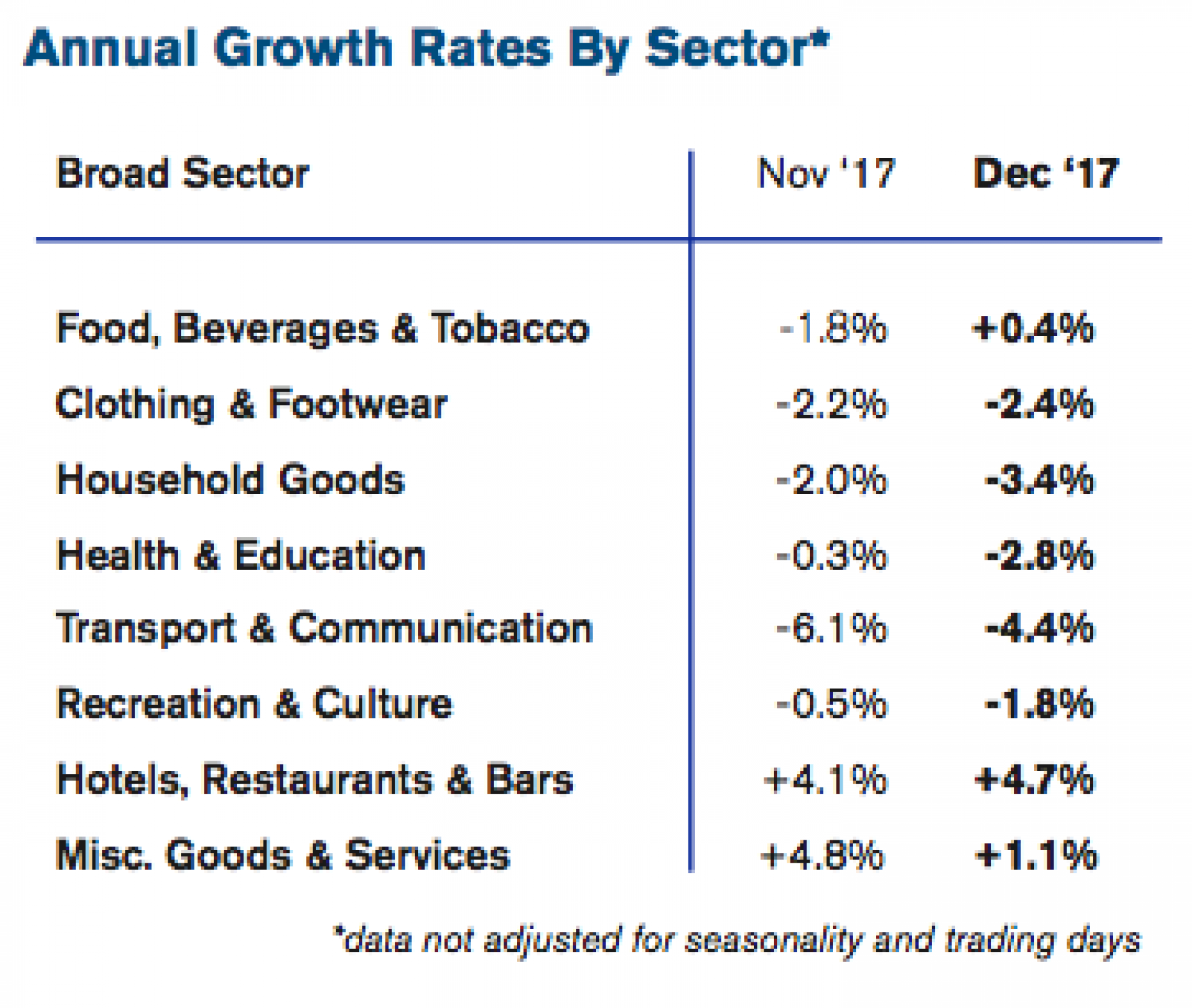
Hope for hospitality businesses despite 2017 being the ‘worst year for consumer spending since 2012’
Claimed to be “the worst year for consumer spending since 2012,” 2017 saw a number of businesses struggle as they fought against increasing living costs, falling household expenditure and, thanks to ongoing Brexit negotiations, subdued consumer confidence.
That said, of the eight sectors monitored, five registered lower expenditure on an annual basis for the month of December, while hotels, restaurants and bars, and food and drink retailers were among the three sectors to have registered an increase.
Up 4.7% on the year, Visa said hotels, restaurants and bars “remained a bright spot” and “saw the quickest upturn in spending volumes” last month, as did food and drink retailers who registered the first increase in expenditure since September 2016 with a “marginal” rate of growth at 0.4%.
Visa chief commercial officer, Mark Antipof, commented: “Christmas rounded off a lean year for retailers with consumer spending seeing its first consistent 12 month decline since 2012.
“December’s consumer spending figures confirm our earlier prediction that the UK would see its first fall in overall Christmas spending in five years. This result has bucked the trend of the previous four years which saw annual consumer spending rise by an average of 1.7%.
“…Hotels and Restaurants were again a bright spot in December’s results. Consumers have been opting to spend on UK staycations as opposed to physical items and trips abroad.”
Accompanying the Index is news from tax and consulting firm, RSM, who claim that “bars and restaurants will play a pivotal role in tempting consumers, particularly millennials, back to the high street in 2018.” It follows its survey of 2,000 UK consumers entitled ‘Who are today’s consumers?’, which found that 75% visit the high street to eat and drink - increasing to 87% of 18-35 year olds.
The survey also revealed that 51% now describe themselves as ‘cost-conscious’ when it comes to spending on eating out, clothes, homeware and technologies – not surprising when household expenditure fell again in December by 1% (following a -0.9% fall in November.)
Partner and head of leisure and hospitality at RSM, Paul Newman, said: “Consumers are increasingly craving the experiential. Gone are the days of just nipping to the shops - consumers are looking for a dynamic high street that delivers the opportunity to shop and browse while socialising and offering a new experience. This is particularly relevant with millennials who are looking for ‘Insta-worthy’ experiences.
“Due to the high levels of 18-35 years olds already hitting the high street, catering for this shift in demand is becoming increasingly important, so expect to see more multi-sensory experiences, new cuisines and unique offerings such as single-item menus popping up on the high street in 2018.
With 25% of millennials admitting they would be prepared to pay “a premium to enhance the eating and drinking experience and days outs” – a further 25% “willing” to pay up to 20% more for sustainable produce – Newman concluded: “Although consumers are looking for more variety on the high street, the focus is on quality rather than quantity, and technology will play an increasingly important role in this approach.
“Whether it’s maximising online booking platforms, implementing time saving tech or harnessing emerging technologies such as robotics, augmented reality or artificial intelligence – innovation will spearhead future change and transform the consumer experience within the leisure and hospitality sector.”
